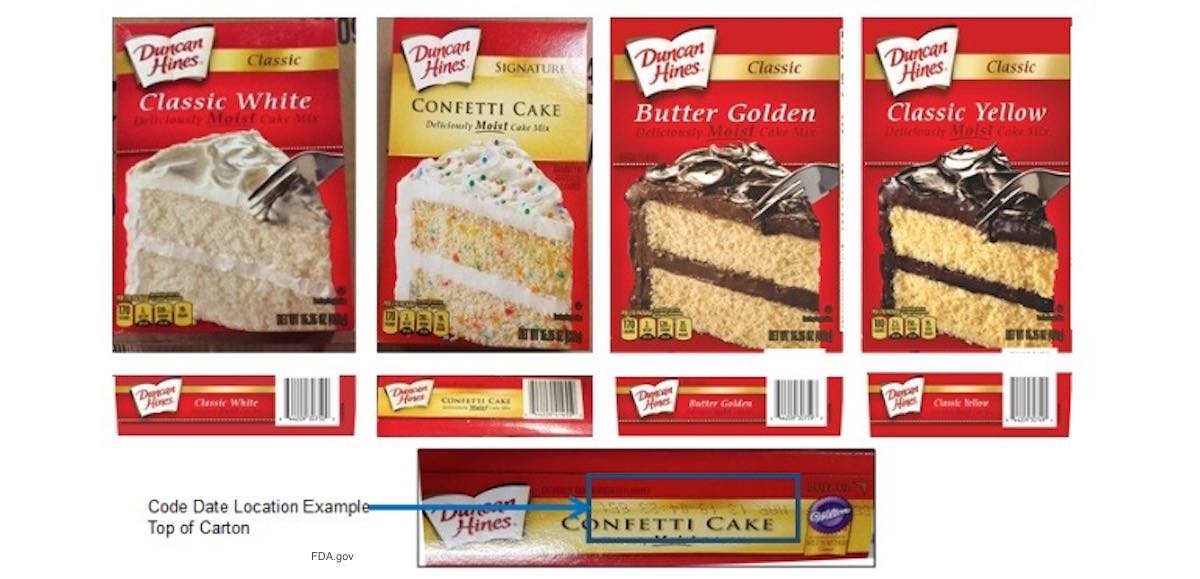For the first time, whole genome sequencing solved a Salmonella outbreak associated with cake mix, according to a study published in the Center For Disease Control and Prevention’s Weekly Morbidity and Mortality Report. This cake mix Salmonella outbreak was associated with Duncan Hines products.

This outbreak was unusual because the Centers for Disease Control stated, “There was not enough epidemiologic and traceback information available to determine if ill people in this outbreak were linked to contaminated cake mix produced by Duncan Hines,” even though a Salmonella Agbeni isolate was found in an unopened box of Duncan Hines white cake mix.
The outbreak was first identified when two patients living in Oregon were diagnosed with Salmonella infections in August 2018. Both patients told investigators they ate raw cake mix. The binomial probability that both of these patients were exposed to raw cake mix by chance was determined to be 0.003.
The Oregon Health Authority then collected and tested 43 unopened boxes of cake mix of various brands from six retail locations. Salmonella Agbeni was isolated from a Duncan Hines white cake mix. Whole genome sequencing data was uploaded to the U.S. National Library of Medicine’s National Center for Biotechnology Information website.
On October 19, 201, the Oregon Health Authority found that clinical isolate from four patients in Maryland, Ohio, and Wisconsin were genetically related to the Salmonella Agbeni isolate from the unopened box of white cake mix. State public health officials in those three states were notified about the finding on October 22, 2018.
The FDA launched an investigation on October 30, 2018. FDA collected samples including flour, finished cake mix, and environmental samples. All tested negative for Salmonella. But on November 5, 2018, a voluntary recall of Duncan Hines classic white, classic butter golden, signature confetti, and classic yellow cake mixes was announced for possible Salmonella contamination.
The outbreak was declared over by the CDC on January 14, 2019. The study states that “This is the first time that OHA used WGS data on the publicly available NCBI website to detect a multistate outbreak associated with a widely distributed consumer product, which resulted in product action.” This tool is especially helpful when outbreaks are associated with widely distributed products that have long shelf lives, since these types of outbreaks are typically difficult to solve.




